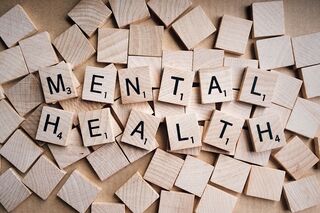Health
What Most People Don't Know About Mental Health
Physical issues shouldn't be treated as more valid than mental health issues.
Posted June 13, 2020 Reviewed by Devon Frye
When physically sick, most people usually won't hesitate to pursue medical or professional attention; same with a broken bone or any virtually any suspected physical ailment. Employers also readily accept physical health issues as a legitimate reason to miss work, but not so much mental health issues. Why aren't mental health issues taken as seriously or seen as legitimate? What's up with the double standard? Why isn't our mental well-being treated like our physical well-being?
I began highlighting this same double-standard regarding the difference between physical and psychological trauma in this article, but it also applies more broadly to most mental health issues. Many people don't know that emotional suffering can dominate the lives of many coping with a diagnosable mental health issue. The lack of connection, trouble concentrating, irregular sleep, among other issues, can become so upsetting that they create major social, emotional, and occupational impairment for many mental health sufferers.

Certain mental health issues are more serious than others. A useful metaphor is comparing mental health issues to emotional wounds. It may seem easier to manage and treat a physical wound or ailment, especially one that is visible like a scrape, broken finger, cough, or runny nose, but it's more nuanced. Just like with physical wounding, mental health issues like post-traumatic stress may simply need a little space, time, and TLC from another human, such as a romantic partner, parent, colleague, or friend in order to heal. Other mental health issues demand professional intervention. Sadly, there's a pernicious misconception in our world that physical issues are more valid than mental health issues. Not true. Ironically, mental health issues can worsen physical health issues and vice versa. They're more related than many are aware of.
Because they are more visible to our five senses, physical ailments are often more likely to be understood and validated than mental health issues by others as painful and legitimate. Unfortunately, when a mental health issue is continually invalidated by others, it can inadvertently add to the pain, similar to applying salt to a cut, or wood to a fire. We've all been told, "get over it" when suffering in our mental health. These platitudes, while often well-intentioned, never help. The mental health sufferer is usually already suffering enough, and this can make their suffering worse by making them feel at fault for having suffered in the first place.
Just like you can't fight a riptide in the ocean with force, willpower is often helpless against mental health issues. It's like calling a person with a broken leg "weak" because they can't run; it can compound the already-existing psychological pain and adds insult to injury. Sufferers aren't suffering because they're weak. Intervention, psychotherapy, or pharmacotherapy with a qualified professional would be like putting a cast on the broken bone so the mental health issues can heal properly, or decrease in intensity, frequency, and duration.
Unfortunately, much of the lay public doesn't see it this way or understand how or why mental health issues can have a profound and lasting negative impact on someone. I'm grateful for the congressmen Paul Wellstone and Pete Domenici for spearheading the 2008 Mental Health Parity Act that ensured health insurance companies prioritize mental health issues similarly to physical or medical health issues.
Having a mental health issue doesn't excuse one's behavior; the sufferer is still responsible for their own behavior. Fortunately, healing from mental health issues is very possible and doesn’t need to take a lot of time (many psychotherapies such as mindfulness and EMDR therapy [what I specialize in] are short-term and highly effective).
Now that you know, there's one small thing you can do to reduce suffering in the world: I would recommend you do not minimize others' mental health issues; be curious, supportive, validating, and compassionate when someone risks telling you about their mental health issue.
Mental health issues thrive on secrecy and shame. Only when mental issues are seen as valid and comparable to physical health issues can we have open, supportive, and productive dialogues about them. This will decrease the stigma connected to mental health issues, which is a giant step toward normalizing mental health treatment so fewer people suffer in silence. You can be part of this solution.


